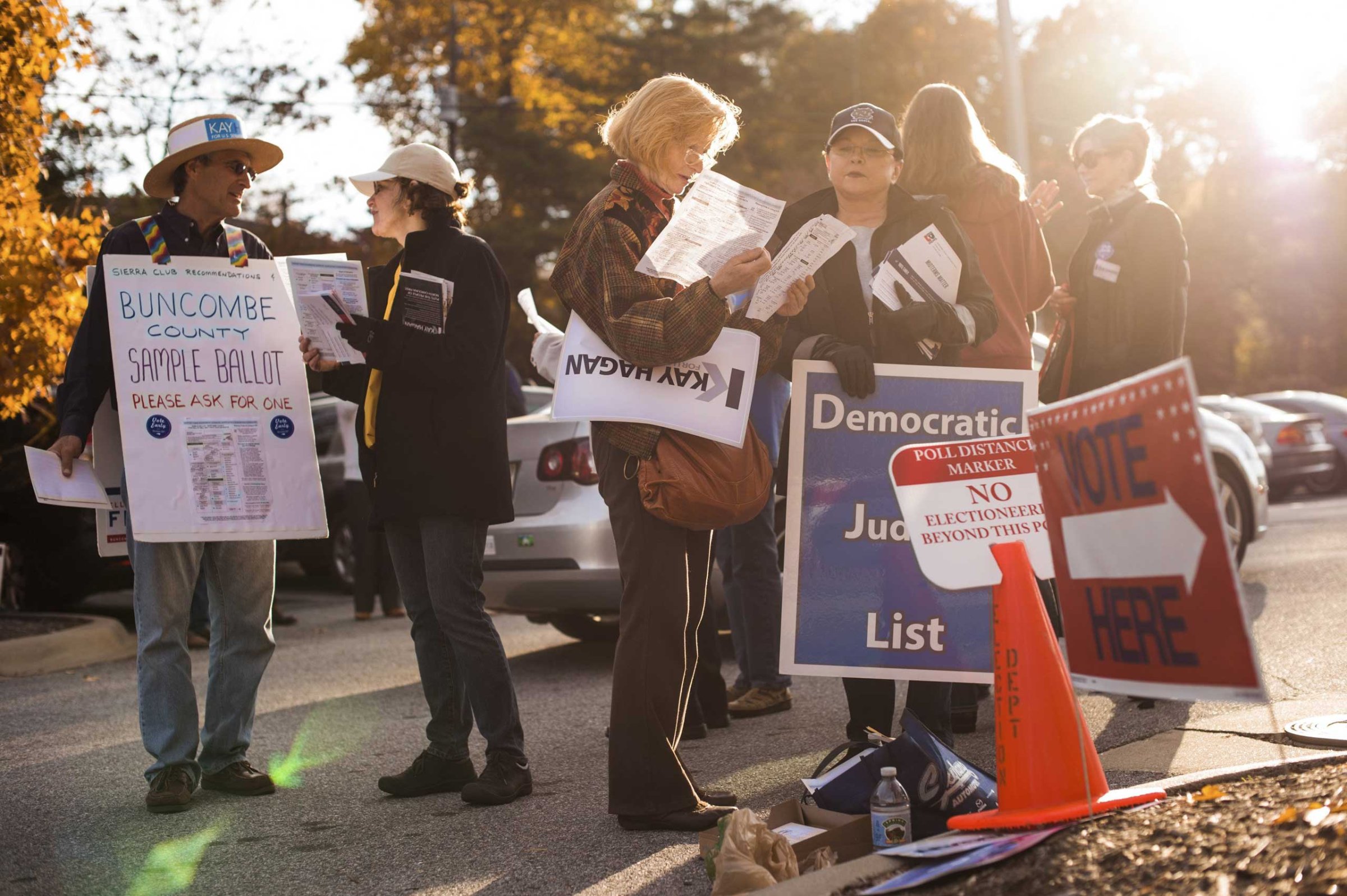
For more than 13 million Americans, Election Day has already come and gone. And that means control of the Senate may already have been partially decided, as a little more than three million of those voters were from key swing states, according to data from the United States Election Project.
So who’s winning? Early vote returns won’t tell us who is ahead in some of the country’s most closely-watched races, but they can give us an idea of where things stand heading into Election Day. And for now, both sides have evidence they can point to that shows they’re doing well.
For Democrats, North Carolina looks particularly promising. So far in the Tar Heel state, where voting rights advocates worried a shortened early voting period would have an adverse impact on the election, over 800,000 votes have been cast so far in the election and 47% were cast by registered Democrats. Registered Republicans account for about 32% of North Carolina’s early votes.
According to North Carolina political science professor Michael Bitzer who runs a blog tracking voting and politics, at least 130,000 more votes have been cast in 2014 compared to the same period in 2010, even though there were seven additional days of early voting that year. Also, more unaffiliated voters and black voters who did not participate in 2010 are hitting the polls this election.
Early vote totals in North Carolina could signal good news for incumbent Democrat Sen. Kay Hagan, who is facing a tough challenge from Republican state Rep. Thom Tillis, but Election Day will show whether the flood of early votes from registered Democrats will surpass the expected Republican turnout at the polls.
For Republicans, the best evidence comes from Colorado, which is hosting its first election using all mail-in ballots. Out of the 1,149,745 votes that were cast as of Friday, about 41.3% were from registered Republicans. About 32.2% of votes thus far are from Democrats in the state. A recent report by Colorado Public Radio, however, suggests both parties are working the ground in the final days of the election to ensure voters get their ballots in the mail. The last-ditch effort could help in the state, where the latest round of polling has incumbent Sen. Mark Udall and his Republican challenger Cory Cardner tied.
It must be noted, too, that a couple days out from the election, the most telling results are coming from two states that took two very different approaches to altering the voting process. In an attempt at expanding the voting pool, Colorado sent ballots to voters instead of waiting for them to show up at the polls, while North Carolina enacted what has been called the most restrictive voting law changes in recent history.
And then, there’s Iowa where a recent Reuters poll has Senate hopefuls Democrat Bruce Braley and Republican Joni Ernst neck-in-neck. There, Democratic voters have returned more absentee ballots than Republicans—but just barely. Out of the 391, 772 votes returned, 39% are from registered Republicans and about 41% are from registered Democrats.
More Must-Reads From TIME
- The 100 Most Influential People of 2024
- The Revolution of Yulia Navalnaya
- 6 Compliments That Land Every Time
- What's the Deal With the Bitcoin Halving?
- If You're Dating Right Now , You're Brave: Column
- The AI That Could Heal a Divided Internet
- Fallout Is a Brilliant Model for the Future of Video Game Adaptations
- Want Weekly Recs on What to Watch, Read, and More? Sign Up for Worth Your Time
Contact us at letters@time.com